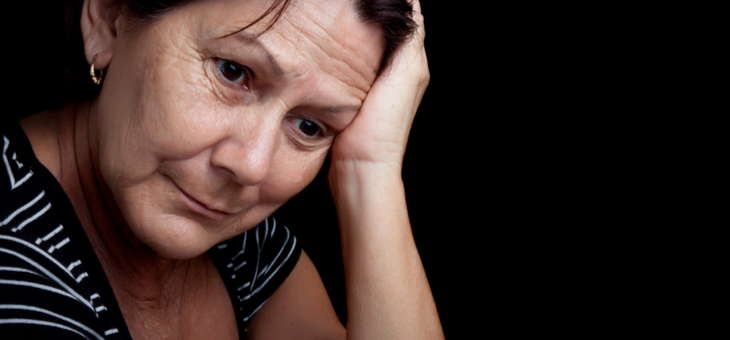Almost half of the 15,000 women who participated in Jean Hailes’ 2018 health survey had been diagnosed with depression or anxiety by a doctor or psychologist. And two thirds of women reported feeling nervous or anxious on at least seven days in the previous month.
The fourth annual survey is conducted by not-for-profit organisation Jean Hailes for Women’s Health; and with 60 per cent of the respondents aged 50 and over, the survey paints a grim picture for female retirees and those approaching retirement.
The survey also found that 23.9 per cent of the women could not afford to see a health professional when they needed one.
The survey supports YourLifeChoices’ 2018 Insights Survey which shows that healthcare costs and the ever-increasing costs of private cover are a key concern for older Australians.
Professor Danielle Mazza, head of Monash University’s department of general practice, told newsGP the fact that so many women could not access a doctor was particularly concerning.
“Almost one in four of these women couldn’t afford to see a health professional when they needed to. That’s a very disturbing finding, particularly relevant in the context of primary care and general practice who are the main providers of health services to women,” she said.
“This reinforces the need for comprehensive and accessible primary care services to address these physical and mental needs of women.”
One in five women said there were issues that they avoided discussing with their doctor. The top health issues they wanted to know more about were:
- weight management (34.9 per cent)
- healthy eating/nutrition (31.7 per cent)
- mental and emotional health (29.3 per cent)
- anxiety (28.3 per cent)
- menopause (24.9 per cent).
Chris Enright, head of education and knowledge exchange for Jean Hailes, said the findings help to understand what women needed in order to lead healthy lifestyles.
“Our survey reflects that women worry about their health, particularly their weight, and getting enough time to themselves just to unwind, and 9.5 per cent of women drink alcohol every day,” she said, while noting that that number jumped to 13.7 per cent for women aged over 50 and to 23.8 per cent for those aged over 80.
Women in Western Australia were most likely to drink alcohol daily (11.8 per cent), followed by NSW (10.6 per cent) and Queensland (9.6 per cent).
There was also good news in the results. “Hardly any of the 15,000 women that we surveyed are regular smokers – in fact, 90 per cent hadn’t smoked in the past year. And half of women describe their health as very good or excellent,” she said.
In terms of physical activity, most women (70.3 per cent) reported doing at least two hours of moderate physical activity per week. Women aged 66 to 79 were the most likely to do at least two hours of moderate physical activity each week (75.6 per cent), and women aged 36 to 50 were the least likely (64.1 per cent).
Overall, women living in Victoria were the most likely to do at least two hours of physical activity each week (72 per cent) and women in Western Australia were the least likely (64.9 per cent).
Have you experienced mental health issues? Was cost a factor in seeking help?
Related articles:
Will baby boomers break health system?
Dementia ‘cure’ under microscope
What women want – in bed

